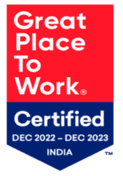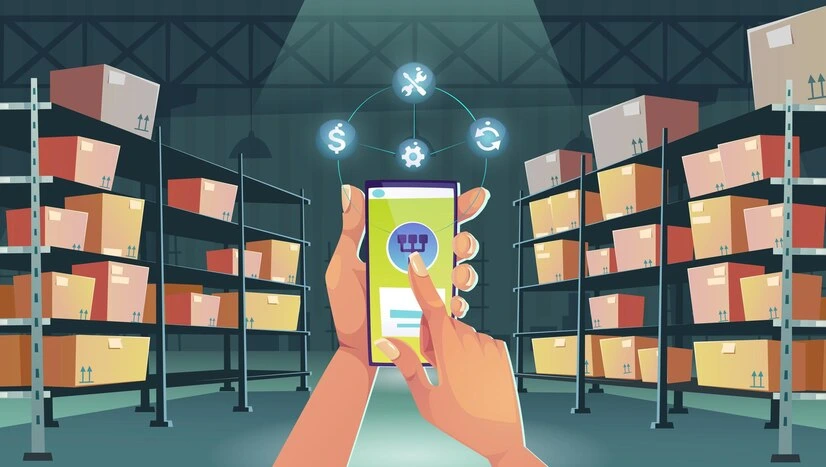Businesses everywhere are always on the hunt for the next best thing to drive profits and innovation. Whether it’s better systems or revitalizing heritage products, making a strategic move is what can unlock true business potential. For this reason, the world’s number one customer relationship management (CRM) platform, Salesforce, is crucial to advancing 21st century businesses.
With this A3logics blog, we’re looking at one of their leading products Salesforce AppExchange and understanding this development solution:
- Understanding the Salesforce AppExchange product
- Planning for introducing the Salesforce AppExchange development to a business strategy and unique value proposition (UVP)
- Artificial Intelligence (AI) technology capabilities in AppExchange products
- Macro and micro benefits for businesses using Salesforce AppExchange development
- Why customer experience (CX) improves using Salesforce AppExchange
Now let’s get started with reviewing everything businesses should know to conceptualize and deploy a Salesforce AppExchange development.
Overview of Salesforce
To begin with, let’s review the overall Salesforce platform and unpack why it’s so valuable for businesses.
In essence, Salesforce is one of this century’s foremost software companies with a world-class CRM product that’s continually expanding. Since the company began in 2001, the CRM has evolved to become a suite of products and partnerships.
Major Salesforce product offerings — including AppExchange and development for these products are:
- Customer 360
- Service
- Sales
- Data Cloud Genie
- Commerce
- Artificial Intelligence range of products
- Tableau analytics
- Slack team workflow systems
- Mulesoft
- Small Business
- Partner Apps & Experts in the form of the AppExchange
When businesses opt for any of these products, they’re able to derive value from their monthly subscription that’s billed annually.
Specifically, the topline Salesforce platform points of value for businesses are:
- Cloud-based — Businesses don’t have to update their infrastructure or download the Software-as-a-Service (SaaS) to their servers.
- Customizable — Custom configuration can happen within days though businesses don’t have to opt for customizations with a developer to deploy.
- Robust and scalable — Designed for features and technical components to be continually added to the products or range of Salesforce products in use.
- All-in-one products — Enabling businesses to access all information in one place and eliminate team silos that diminish productivity, cooperation, and customer experiences.
- Insight-driven data systems — Helps businesses gain empirical information about how their business is running, customers, sales, and leads. Additionally it can also assist managers with training and supporting staff in their roles.
- Highly accessible — Salesforce products are secure systems that can be accessed from anywhere driving productivity in hybrid, remote, and mobile teams.
- User-friendly systems — User-interface (UI) and user-experience (UX) are modern, slick, and powerfully minimalist. Both user productivity and workflow are continually supported to maintain operational standards and user engagement.
- Integration — All products are highly integrated with one another and with leading third-party platforms.
Once businesses invest in Salesforce they can consider if they would like to add new features (at an extra cost). In general the products are easy for businesses to use irrespective of if they invest in developers for set-up. As businesses move forward with their strategic planning they may opt to bring in additional products that work together seamlessly.
Key facts about Salesforce AppExchange development
Now that we’ve reviewed the overarching Salesforce offering we’ll delve into Salesforce AppExchange and what Salesforce AppExchange development is. Accordingly Kinza Yasar explains for TechTarget that, “AppExchange is a custom application building and sharing platform for third-party applications that run on the Force.com platform.”
Although AppExchange is functional with all Salesforce products, the way it helps extend the Customer 360 product solves many problems. In particular, AppExchange connects Salesforce customers, i.e. businesses, to find custom and ready-to-use off-the-shelf apps. Emphatically Andrew Cook writes for Salesforce Ben “It’s just like the Apple Store but for your Salesforce org, full of great apps ready off-the-shelf for you to configure.” In fact AppExchange is considered the world’s leading enterprise cloud marketplace for add-on packages to Salesforce product portfolio.
So AppExchange essentially takes the already valuable Salesforce product and extends this functionality in myriad directions through development options including:
- Apps — Download and install third-party apps
- Components — Used as building blocks for code-free apps and custom pages
- Bolt Solutions — Pre-built templates for industries and consultants
- Flow Solutions — Pre-built business processes to accelerate automation
- Lightning Data — Described by Salesforce as “Pre-integrated, approved, scalable data solutions with real-time enrichment”
- Experts — Certified Salesforce industry leaders whose knowledge supports problem resolution, integration, and implementation
In reality, the range of apps across the Salesforce product suite falls into these industry categories also called Collections:
- Integration
- Service
- Marketing
- Back Office
- Labs
- Manufacturing
- Sales
According to Salesforce, there are currently over 5,000 solutions in the AppExchange store that includes both:
- Paid solutions
- Free solutions
Though App quality isn’t necessarily reflected in price, if businesses want to profit then paid apps are a sales funnel. The goal then is identifying the best apps for businesses that might be available or even develop custom AppExchange solutions. Businesses can do this on the AppExchange via the solutions categories Salesforce has in place. Comparatively businesses can build their own app to deploy onto the AppExchange marketplace or find apps for their system problems.
What businesses should understand about the Salesforce Sandbox
At this point businesses might be wondering how they can manage risk if they download an AppExchange package. When an AppExchange package is downloaded, then businesses can opt to run it with their Salesforce platform in Sandbox.
To explain, Salesforce Sandbox is the testing and training pathway that’s a replica of the organization platform. Once businesses download their App they can open their Sandbox and install the app there. Then they can experiment with the App and see how it works with their operational needs and workflows. Provided that businesses use Sandbox then they can evaluate if the App works for them without affecting their actual platform.
What business strategies could Salesforce AppExchange development be used for
Following on from our AppExchange, we’ll review the strategic value of AppExchange development for businesses.
Salesforce AppExchange is understandably a high-level value-add for businesses whether they’re using Apps or investing in app development:
• For their own business
• Planning to add AppExchange products to their Salesforce ecosystem.
• As an internally-facing strategy this would boost their own workflows, Salesforce products, and target any ongoing business problems.
• For their own value offering
• Investing in app development to be made available in the AppExchange for other businesses (B2B).
• As an externally-facing strategy, this could be part of the UVP such as bringing the product to the AppExchange.
Reasons why a Salesforce AppExchange development adds value for businesses
- Brings an in-demand solution to market as a one-to-many product distribution.
- Can solve real platform problems or limitations for niche industries.
- Capitalizes on market trends to extend the value of the Salesforce platform.
- Aligns with Salesforce’s scalability and the business strategy of continually fortifying asset value.
- Apps build business brands and diversify UVP with new asset streams that add value and expertise to their industry.
How costly is a Salesforce AppExchange development likely to be
While an AppExchange development might be an investment, the scope for return and impact is sizeable. Explicitly Ed Ralph attests for Salesforce Ben that App development can be simple with no coding. For example, a “collection of Salesforce Objects and other declaratively produced functionality (Flows, etc.)”.
Because development costs vary according to the extent of work required businesses should evaluate their desired impact and target returns. Accordingly when they meet with a Salesforce AppExchange developer company they can discuss these goals and their business strategy. This can inform a budget and how much businesses decide to spend. Even so, Ralph says, “However, to create an App with rich functionality it is almost certain that it will require some coding; Apex and maybe some Javascript are the languages you will use.” Basically businesses should be willing to spend for returns or there’s no guarantee of a quality App for the marketplace.
The customer engagement value-add of a Salesforce AppExchange development
Additionally investing in an AppExchange development means businesses can connect with new or returning customers. As a calling card for their products and expertise, a high-performing App demonstrates business excellence in the enterprise space.
Equally because Salesforce products start with their foundation CRM, businesses are inherently choosing their customers when they invest in Apps. Therefore businesses with effective, well-received Apps can market this achievement to customers as evidence of their commitment to CX.
Unquestionably investing in AppExchange development can have major returns for businesses due to how it:
- Reaches global businesses
- Tailors and customizes platform solutions
All in all this is how Salesforce AppExchange enables a strong business strategy and UVP.
How to plan for introducing the Salesforce AppExchange development to a business strategy
Because businesses benefit in a range of ways with a Salesforce AppExchange development, how do they plan this into strategy?
Seven key planning steps for a business strategy using Salesforce AppExchange development
1. Start with success
Define and establish a goal roadmap for short-term and long-term objectives.
2. Meet with Salesforce Partner developer experts
Complete a thorough consultation that references the goal roadmap. Because businesses need to work with AppExchange partners to list on the AppExchange this is a non-negotiable step.
3. Set a budget
Evaluate the amount needed to develop the right App referencing the developers’ strategic guidance.
4. Research the market
Investigate with the developers the existing AppExchange market using the marketplace’s personalized recommendations and competitor products.
5. Review Salesforce Trailhead resources and reviews
Thoroughly explore AppExchange solutions resources including Getting Started Trailhead guides, community content, App Guides (customer solution recommendations), and peer reviews.
6. Test extensively
Use industry-standard App testing like beta testing and quality assurance as well as the Salesforce Sandbox simulation. Additionally engaging with the Salesforce community to gain insights and undertake open App testing like demos and test drives.
7. Deploy to the AppExchange
Complete security review and list the App on the AppExchange to connect customers with the solution.
Innovate Your Salesforce Workflow with Our AppExchange Development Expertise
Reach Out to Us Today!
Why businesses need a Salesforce Partner for an AppExchange development
A prerequisite for listing on the Salesforce AppExchange is that businesses are members of the Salesforce Partner Program. In summary, there are four tiers of Partner Program membership in the ISV program: Base, Ridge, Crest, and Summit.
In order to list Apps on the marketplace, businesses need to register with their Salesforce account in the Partner Program. Following registration businesses can then use partner exclusive resources and tools plus begin getting their Apps listed on the AppExchange.
What is a Salesforce Partner development company
Although businesses can register to become Salesforce Partners, a Partner development company (or agency) are members of the Partner Ecosystem.
Benefits of working with a Salesforce Partner for an AppExchange development
- Expertise proven through certified consultants, architects, and administrators
- Able to add new features and scale products efficiently with some Partner-exclusive capabilities
- Cloud product expertise and industry specializations
- Proven track record of successful business analysis and collaboration
- Straightforward process for go-to-market strategy and deploying Apps to the Appexchange
- Established position in the AppExchange
- Consultancy experience that informs guidance on AppExchange development
- Part of the AppExchange Partner Program and the Partner ecosystem of recognized Salesforce experts
How do key operational business areas benefit from Salesforce AppExchange development
Since we’ve reviewed the strategic business benefits of AppExchange AI options, let’s now review how AppExchange positively impacts operations. While we’ve already considered AppExchange as a specific UVP, this section explains the common ways App packages enhance Salesforce products.
Common business areas benefiting from Salesforce AppExchange development packages
- Call centre — Businesses can develop or find packages that introduce extra features to their call centre Salesforce 360.
- Field operators — Diversify mobile business tools to suit how team members work in the field. Because this customizes their tools then it adds extra value to field agent contributions.
- In-product service features — Introducing additional service system components like Salesforce Service Cloud or Salesforce 360 always builds value. For example, self service for customers can improve their CX whether updating existing systems or introducing this option.
- Case management — Another feature to build out with AppExchange is the Salesforce 360 case management features. Not only does adding business-specific customizations make sense but also resolving any niggling issues that other industry peers experience.
- Service catalog — Introducing new services is always a way to boost revenue. Therefore App packages that add new service option — especially for e-commerce — will benefit businesses and their customers.
How a Salesforce AppExchange development delivers a high-quality CX for businesses and their stakeholders
Above all a Salesforce development company plays an integral role in engineering and deploying AppExchange packages. This is why businesses should view their investment in an AppExchange strategy as part of levelling up all operations. Obviously this includes their own Salesforce products, too.
Areas where Salesforce AppExchange development experts help businesses create an incomparable CX
-
Cutting-edge development
Certified partner developers can bring the latest features to their Salesforce Apps. Then this ensures products consistently incorporate features that customers expect and need.
-
Industry knowledge and research
Similarly to certification, Salesforce development experts have a virtually unparalleled practical insight into the AppExchange market. Simultaneously they can apply this knowledge to research as they conceptualize and plan App development. Overall this results in products that match CX standards while raising the bar on quality UX/UI.
-
Testing
In addition to development, testing is a key component in CX delivery. Straightaway the testing processes of AppExchange exchange are thorough, wide-reaching, and incorporate executive planning.
-
Maintenance
Once Apps are deployed, Salesforce development experts will monitor and continually improve performance. Although maintenance is integral for any technology, their nous actually helps identify issues swiftly and resolve them efficiently. As a risk management tactic this assists with supporting high-quality CX with no disruptions.
-
Scaling
Lastly development experts guide mid-term and short-term scaling objectives for businesses. In effect this sustains CX and they are able to add features as new technology emerges or business goals evolve. Significantly Salesforce scaling is most successfully managed with certified partners therefore expert input here is truly invaluable.
How to plan for introducing Salesforce AppExchange development to a business strategy
When businesses are aiming to make Salesforce AppExchange their strategy then they need to evaluate their short- and long-term. Specifically this means creating goals for both their AppExchange strategy and wider business strategy. Accordingly then this is where development services like a Roadmap Strategy are beneficial. Not only does this help with progressive strategic achievements but also it significantly contributes to CX, which is always essential.
To explain, a roadmap strategy for Salesforce AppExchange development involves:
- Meeting with the development team — This needs to be a Salesforce Partner.
- Evaluating needs and outlining planning — Using Assessment and Project Planning.
- Reviewing existing systems and products — Considering the AppExchange products needed and existing Salesforce suite.
- Ideating, researching, and prototype development — Embarking on the AppExchange development then testing using Salesforce Sandbox plus beta testing and quality assurance (QA) for UX/UI.
- Deployment to the AppExchange — Once the App is ready, listing on the AppExchange is completed and businesses can use their product, too.
Because a roadmap strategy helps businesses plan for their short- and long-term objectives, Salesforce AppExchange development isn’t necessarily immediate. Nevertheless any business looking to advance their tactical activities benefits from this development service. When applied to a Salesforce AppExchange development then gains include timing the go-to market effectively and wide-reaching testing.
Drive Growth and Efficiency with AppExchange Innovation.
Reach Out to Us Today!
Three case studies of Salesforce AppExchange development
Finally, we’ll review three examples of leading organizations who turned to the Salesforce AppExchange to achieve strategic goals and operations.
1. Second Harvest of Silicon Valley
Firstly, food bank service Second Harvest of Silicon Valley turned to AppExchange solutions during Covid-19. Due to the nearly 500% spike in service demands the non-profit organization experienced urgent, unprecedented infrastructure pressure. When this happened their Salesforce team turned to the Elements Catalyst App to manage their operations. The platform encompassed their wide-reaching processes while boosting functionality to minimize disruption and achieve deliverables during the crisis. In particular, the organization nominates the Process Mapping functionalities of Apps as highly beneficial for new processes and staff training.
2. Deliveroo
Secondly, global food delivery service Deliveroo is in operation in 800 locations so its needs are constantly changing. Whether due to expansion or the 2020s market challenges, their operations demand reliable, robust technology. When the pandemic started, Deliveroo recognized their B2B stakeholder relationships required urgent attention. Thus they opted for the AppExchange to design their technical solution. Fortunately they were able to source a ready-made, out-of-the-box connector that eliminated high-level developer input. Following this their team was able to make direct connection with their restaurant partners to manage orders and operations. Overall Deliveroo uses a range of AppExchange packages to support their Salesforce systems including DocuSign with their CRM for contracts.
3. FineMark National Bank & Trust
Thirdly, the entrepreneurial spirit of FineMark National Bank & Trust is why it’s the preferred financial institution for discerning clients. Specifically, FineMark is dedicated to being an innovative financial company that takes a collaborative financial approach. Their clients include leading athletes, entertainers, and high net-worth individuals. Therefore they need systems with secure, effective remote services that can service a clientele who are often living or working. Accordingly they turned to Salesforce CRM as their dedicated system for client operations. When they added the DocuSign AppExchange package they extended their global services capabilities so clients can always complete financial activities. Since then they report almost 100% adoption of the eSignature solution that simplifies FineMark processes yet keeps services personal.
Conclusion
Because Salesforce is constantly bringing out new offerings and adding features to proven products businesses can invest strategically. In practice, this means opting for Salesforce custom developments that can be scaled as the business grows. Furthermore, Salesforce AppExchange is at the cutting-edge of technological investment and innovation so businesses derive value this way, too. Connecting with customers and keeping service central remains an imperative part of business relevance and growth. Ultimately then businesses can look at AppExchange development as a way to extend their operations and offerings efficiently and economically.
Frequently Asked Questions (FAQs)
Why should a business invest in Salesforce AppExchange development?
AppExchange development is a strategic way for businesses to both maximize their own Salesforce product and offer AppExchange marketplace solutions. In order to to do this, businesses need to work with a Salesforce development partner who can list AppExchange Apps. To plan AppExchange development, start with a consultation with experienced Salesforce Partner company A3logics who can strategically evaluate business needs.
Can a Salesforce AppExchange development work with an existing Salesforce product subscription?
A Salesforce AppExchange development will work with any Salesforce product subscription. Because Apps are compatible with the Salesforce product businesses must have a pre-existing subscription they download the package to. For example, a business might need a CRM App functionality that provides customers additional self-service options. Subsequently they find an AppExchange App or commission an AppExchange development that fulfils the UX/UI needs.
Should businesses choose a Salesforce Partner for AppExchange development
When businesses are investing in their own Salesforce AppExchange development then they need to work with a Salesforce AppExchange Partner. Generally a Salesforce AppExchange Partner is most likely to be a member of the Salesforce Partner Ecosystem. This means that the software development company team developers hold Salesforce certifications for consultation, architecture, and administration. Then they can build, test, deploy and list in the AppExchange, and in the future they maintain and scale Apps.
Should Salesforce AppExchange development be part of a business roadmap strategy?
A business roadmap strategy helps businesses invest in IT solutions, like Salesforce AppExchange development, that aligns with:
- Strategic objectives
- Return on investment (ROI)
For businesses using Salesforce, an AppExchange development is both a value proposition strategy (as a product) and operationally beneficial. Whether businesses are immediately investing in Salesforce Apps or they’ll do this down the track, AppExchange development creates value. Furthermore it helps businesses derive more value from their Salesforce products and customize their operations for better stakeholder outcomes.












